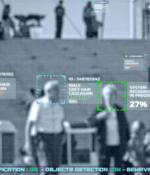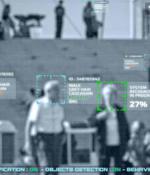Security News

Federal police broke Canada's privacy laws by using a US company's controversial facial recognition software in hundreds of searches, an independent parliamentary watchdog ruled Thursday. In a report to lawmakers, privacy commissioner Daniel Therrien said Clearview AI's collection of images without consent and the Royal Canadian Mounted Police's use of that database were illegal.

Privacy organisations on Thursday complained to regulators in five European countries over the practices of Clearview AI, a company that has built a powerful facial recognition database using images "Scraped" from the web. While Clearview touts its technology's ability to help law enforcement, its critics say facial recognition is open to abuse and could ultimately eliminate anonymity in public spaces - pointing to cases like China's massive public surveillance system.

Law enforcement agencies across the U.S. have used facial recognition technology to solve homicides and bust human traffickers, but concern about its accuracy and the growing pervasiveness of video surveillance is leading some state lawmakers to hit the pause button. The issue caught fire in statehouses after law enforcement applied facial recognition technology to images taken from street cameras during last year's racial justice demonstrations - and in some cases used those to make arrests.

The number of users of software-based facial recognition to secure payments will exceed 1.4 billion globally by 2025, from just 671 million in 2020, a Juniper Research study reveals. This rapid growth of 120% demonstrates how widespread facial recognition has become; fuelled by its low barriers to entry, a front-facing camera and appropriate software.

Following the renewal of an existing contract, IDEMIA will deliver INTERPOL's new identification system that will usher in enhanced capabilities such as higher matching accuracy and more user-friendly interfaces. This latest alliance further strengthens IDEMIA's 20-year relationship with INTERPOL. Collaboration began in 2000 when IDEMIA delivered the first Automated Fingerprint Identification System.

A duo in China has been accused of tricking a government-run identity verification system to create fake invoices. According to state-controlled outlet Xinhua, the suspects tricked the State Taxation Administration platform's identity verification system by manipulating high-def photos with a widely available app that turns photos into videos.

Civil liberties activists are suing a company that provides facial recognition services to law enforcement agencies and private companies around the world, contending that Clearview AI illegally stockpiled data on 3 billion people without their knowledge or permission. The lawsuit says the company has built "The most dangerous" facial recognition database in the nation, has fielded requests from more than 2,000 law enforcement agencies and private companies, and has amassed a database nearly seven times larger than the FBI's.

CyberLink announced a partnership integrating its facial recognition software development kit FaceMe into Vypin eScreener kiosks. Vypin launched the Vypin eScreener kiosk with the latest in automated screening technology to promote health and safety without sacrificing the employee or customer experience.

Canadian authorities have found that the collection of facial-recognition data by Clearview AI is illegal because it violates federal and provincial privacy laws, representing a win for individuals' privacy and potentially setting a precedent for other legal challenges to the controversial technology. A joint investigation of privacy authorities led by the Office of the Privacy Commissioner of Canada came to this conclusion Wednesday, claiming that the New York-based company's scraping of billions of images of people from across the Internet represented mass surveillance and infringes on the privacy rights of Canadians, according to a release the Office posted online.

Black man sues police, saying he was falsely ID'd by facial recognition, joining other Black Americans falling victim to the technology's racial bias. Racial bias against non-white skin in facial recognition landed Nijeer Parks ten days in jail in 2019 after the technology falsely identified him as a shoplifting suspect, a new lawsuit says.